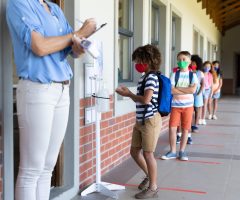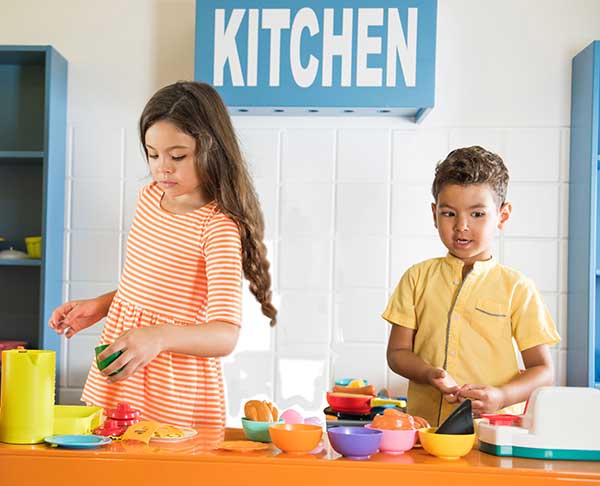17 Sep Jack’s ABA School Day
This is the story of Jack’s ABA School Day. We thought you may like to be given a peek into what happens at Newberry Park each day.
The school day may not be what you expected it to be. When parents hear we run an Applied Behaviour Analysis (ABA) centre, their thoughts automatically go to sitting at a desk for 8 hours a day with boring flashcards and repetitive programmes. A programme is a set of goals that are specifically designed for a child to reach and describes how best to teach the child to reach that goal. We might have a programme to learn to climb a ladder or to make a cup of milo or name the rooms in the house. People often imagine that a child’s tutor spends more time collecting data than getting to know their student.
Here at Newberry Park, you would find the day does not fit that stereotype. Our day is made up of play, self-help skills, gross motor skills and of course academic skills taught in a fun and functional manner. Please feel free to contact us if you would like to enrol your child or arrange an assessment anywhere across Gauteng.
Meet Jack and Sophie
 Jack* is 3 years old and joined us a year ago. Jack was non-verbal and had very little interest in any toys unless it involved bouncing a ball or spinning wheels on a car. After the initial assessment, it was recommended that he receive 3 hours of ABA 5 days a week.
Jack* is 3 years old and joined us a year ago. Jack was non-verbal and had very little interest in any toys unless it involved bouncing a ball or spinning wheels on a car. After the initial assessment, it was recommended that he receive 3 hours of ABA 5 days a week.
Jack’s tutor at Newberry Park is Sophie, and she spends each school day with him. Sophie does an initial assessment each morning and provides a daily report back to his parents. Throughout the day she supervises and tutors him during each of his different school periods. Sophie has been with us for over 8 years and is an extremely skilled tutor. Not only is she an ABA magician but she has 2 children of her own, so she comes with a motherly nature as well.
Follow Jack’s day
If you were to spend the day at school with Jack you would find his day goes something like this:

Jack arrives at school where he lines up with his dad to have his temperature taken and a quick spritz of hand sanitiser. Sophie meets him at the door and they say goodbye to dad. Jack was previously at a mainstream nursery school which made the transition to us far easier. He finds it easy to leave mom and dad in the mornings.
Jack’s first task of the day is to sort out his locker. He walks over and unpacks his lunch box and other items needed for the day into the locker, then it’s off to the toilet.
For Jack’s first classroom period, Sophie sets out as many toys as she can think of in the play area on the mat. While Jack plays with them all for about half an hour. Sophie takes this time to complete a “reinforcement assessment”. We conduct a reinforcement daily to identify what each student would like to work for during their day. This simply means finding what he is enjoying playing with today. The item/s he prefers today will be used later in the day to help reward and motivate him for some of the tasks set for the day. This is one way we can ensure every student is motivated during their work at Newberry Park each day.

After this initial play session, Jack moves on to desk-top work. Desk-top work includes arts and crafts activities such as a painting activity for the day or making a lion out of paper plates and glitter. Some formal work is included in this period as well. Using flashcards and different objects. Jack learns to match things that are the same. Two cups of water, one hot and the other cold, along with the appropriate flashcards help to teach him about opposites. Placing some objects, like toy cars in different positions help him learn his prepositions “This car is next to that one” “That car is behind this one”.
Why you may ask is playing with toys and doing arts and crafts included? Aren’t these a waste of time for children who are likely to have a diagnosis of Autism Spectrum Disorder (ASD)? Far from a waste of time, it is the programme involving these activities that taught Jack how to communicate. We are teaching him language skills while teaching him how to play. He has a vocabulary of about 400 words to request and label items. Asking to go outside or requesting items to play with are now part of his everyday life. He was non-verbal when he joined us but now hardly stops talking. Learning to talk through the programme has produced some very special moments. His mom was over the moon when he said “I love you” to her for the first time.

The desk-top work is followed by some physical activity. If you were there you’d follow Jack outside for a bit of running, jumping and playing on the playground. During this time more academic tasks are also included, like learning the names for actions like JUMP, RUN or SIT. “Vicarious learning” tasks during this playground session involve learning to watch and imitate other children. Comments Jack makes about others and his requests for permission or assistance out in the playground encourage his spontaneous use of language. These are things he needs to know and skills he needs to master which will have a lasting positive impact on him and his family. For a story about how playground skills can improve life for a child and his family’s life see Juliet’s “Jungle Gym Joy …here.
After his desktop work and playground session, it’s often around 9:30 am, but there’s no time pressure. Each morning progresses at a pace Jack is happy with and at this point, it’s time for a snack. Snack time is also a learning time for our hero, as it is for preschoolers the world over. He’s learning to put his snack on a plate and then to feed himself. He has been a very picky eater so he is also learning to like new foods as we slowly incorporate them during snack time.
After eating Jack has some free time and he spends it out on the playground with his peers.

The school period which follows this playground free time involves learning about his normal indoor environment at home. He and Sophie are joined by one of his peers and they run through some programmes focused on the home. Jack and Sophie and his fellow student will, for example, learn to identify the different rooms in the house by going to each room together and learning its name.
They may learn how to direct each other to complete a desired activity, like organising to have something fetched from another room or making a cup of milo. They learn to take turns in a game that also teaches them how to wait and to share a desired item. Most importantly Jack is being taught to communicate his needs naturally moment by moment.
It’s Home Time
A few videos are taken of Jack and Sophie working together which we send to his parents with a summary in his homework diary of how his day went.
 That brings us to home time. At the end of each day, Jack is taught to find his locker, remove all his belongings and put them all into his bag. Packing to go home is a simple skill he will need when he moves to a nursery school environment.
That brings us to home time. At the end of each day, Jack is taught to find his locker, remove all his belongings and put them all into his bag. Packing to go home is a simple skill he will need when he moves to a nursery school environment.
When dad arrives, Sophie walks out with Jack. After a last spritz of sanitiser, dad gets him settled in the car before heading home. It’s been another eventful day for Jack and Sophie at Newberry Park and tomorrow will probably be just as busy. We hope you’ve enjoyed this window on Jack’s School Day as much as he and Sophie enjoyed it.
Please contact us if you would like to enrol your child or arrange an assessment anywhere across Gauteng.
CONTACT US FOR ENROLMENTS< ASSESSMENTS THERAPY HERE
NEWBERRY PARK – RANDBURG Juliet@newberrypark.co.za
NEWBERRY EAST – PRETORIA letitia@newberrypark.co.za
*Not his real name


Sorry, the comment form is closed at this time.